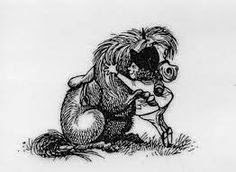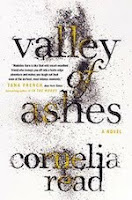James O.
Born
Today we
have a special guest, Alexandra Sokoloff.
I’ve known Alex for many years and think she is a terrific writer. She’s also a smart business person and in this
blog you’ll see why. It is so good the
second part will be on Thursday next week.
Jim
asked me here today to talk a bit about my indie publishing experience. Always
happy to hang with naked authors. I mean, the
Naked Authors.
So
here’s the story. In the summer of 2012 I made the leap: I decided not to go
for a traditional publishing deal for my thriller, Huntress Moon. I put
it out as an e book instead. I made more money in the first month of release than
I’d ever made for a traditional advance, and the book was nominated for a
Thriller Award in the ITW’s brand new Best E Book Original Novel category.
Many
factors went into that decision for me. First of all, I’ve made my living
solely from my writing since I was twenty-five years old. Making writing pay is
not optional for me. And a huge component of making a living as a professional
writer is paying attention to changes in the business. Looking back over my
career, I can see that every five or ten years I have moved from one medium to
another, always incorporating what I’ve learned from each previous incarnation.
I
started out in theater but quickly realized that if I wanted to make a living
as a writer, playwriting was not the most viable way to do that. Then I did
eleven years as a professional screenwriter before I snapped and wrote my first
novel. People thought I was insane to start writing books when I was making a
good living as a screenwriter. That’s everyone’s dream anyway, right? But I saw the film business model changing
before my eyes, studios squeezing writers for more and more script drafts for
less and less money, and as bad as I am at math, I could see that in a few
years I wouldn’t be able to sustain a living simply because of the work time
added without compensation. Add to this
the fact that I’m a woman. In a good
year women get a whopping 20% of the writing jobs in Hollywood. I had
to do something else.
So I
wrote a book, and I sold it to a Big Six publisher, and then sold the next, and
the advances were not enough to live on, but the foreign sales and some film
options made it doable. Barely.
In the
meantime, though, I was learning the book business. And it wasn’t looking good.
I was
lucky, because early on Joe Konrath, well-known (or infamous) as a
self-publishing guru, lectured me on bookstore co-op. And on e books, too, back
before anyone was talking about e
books, but it was Joe’s rants on co-op that really got me thinking. I didn’t
particularly want to hear it, but you can’t unhear something like that. Co-op means that in publishing, the odds are
stacked against everyone but the bestsellers.
The publishers pay bookstores for placement to improve on the success of
their biggest cash cows, at the expense of all the rest of us. The chances of
breaking out of that hierarchy are astronomical. I was working my… brains off at promotion,
getting nominated for major mystery, thriller and horror awards, but I was
quickly learning none of that meant anything to my publisher. By my fourth book
I was done with being crippled by someone else’s mediocre expectations. And by
then, there was the option of indie publishing. A scary option, but a real
option.
 So when
I started to write Huntress Moon, I also
started studying e publishing. What authors did and didn’t do. What Amazon and
Barnes & Noble did or didn’t do. I read Konrath’s blog. I read the
Kindleboards. I watched friends who were self-publishing, like Blake Crouch,
Barry Eisler, CJ Lyons, Scott Nicholson, Ann Voss Peterson, Elle Lothlorien,
Brett Battles, Rob Gregory Browne, JD Rhoades, LJ Sellers, Diane Chamberlain
and Sarah Shaber.
So when
I started to write Huntress Moon, I also
started studying e publishing. What authors did and didn’t do. What Amazon and
Barnes & Noble did or didn’t do. I read Konrath’s blog. I read the
Kindleboards. I watched friends who were self-publishing, like Blake Crouch,
Barry Eisler, CJ Lyons, Scott Nicholson, Ann Voss Peterson, Elle Lothlorien,
Brett Battles, Rob Gregory Browne, JD Rhoades, LJ Sellers, Diane Chamberlain
and Sarah Shaber.
Because
of them, I knew e publishing for a living was not only doable, it was becoming
potentially a far more viable option for me than traditional publishing. So I
studied, and I wrote, and I put out a non-fiction e workbook based on my Screenwriting Tricks for Authors blog,
which taught me all the technical things I needed to know about self-publishing. By the time I had finished writing Huntress Moon, I was already hearing things like “It’s too late.” “That e publishing ship has sailed.” But that wasn’t what I was seeing, from people who were doing it right. I took all I’d learned and put out the book as an e book original. And prayed.
In the
first three months Huntress Moon was
out, I made enough money on that one
book, just in e-format, to live comfortably for a year. I got flooded with e
mail from new readers who had never heard of me but who loved the book and were
now buying all my others. My Facebook followers jumped from 500 to 20,000 and
kept growing —going on 110,000 at this writing.
That
chunk of money and the steady income stream that followed has given me plenty
of stress-free time to write the second and third books in the series. Every
book means more royalties, at seventy percent per book sold. The royalties keep
coming every month. I know exactly what
I’m making. I know when I have to adjust, when I have to do a promo. I know by when I have to make another lump
sum to carry me through the next fiscal year. The clarity, compared to
traditional publisher royalty statements, is breathtaking.
No
longer do authors have to hold to the glacial timetables of their publishers,
or worry about the possibility of the publisher deciding not to publish at all
(which has happened to several of my friends, recently).
I
know that if I work hard, I can put out two books out this year, with
a guaranteed income. What that income will ultimately be, well, I don't
know, but traditional advances are way down and, much worse than that, most
publishers are demanding e rights in perpetuity in traditional contracts, which
seems to me an insane thing for authors to give up in the current climate. That
alone pushed me in the e publishing direction.
And
Amazon is constantly innovating and presenting new ways for authors to make
money by self-publishing. I just finished an audiobook of Huntress Moon with Amazon’s ACX program, and added a really nice
income stream to my monthly earnings.
Sounds
good, right? But you have to ask yourself:
IS
INDIE PUBLISHING FOR ME?
Find
out the answer next week.



















